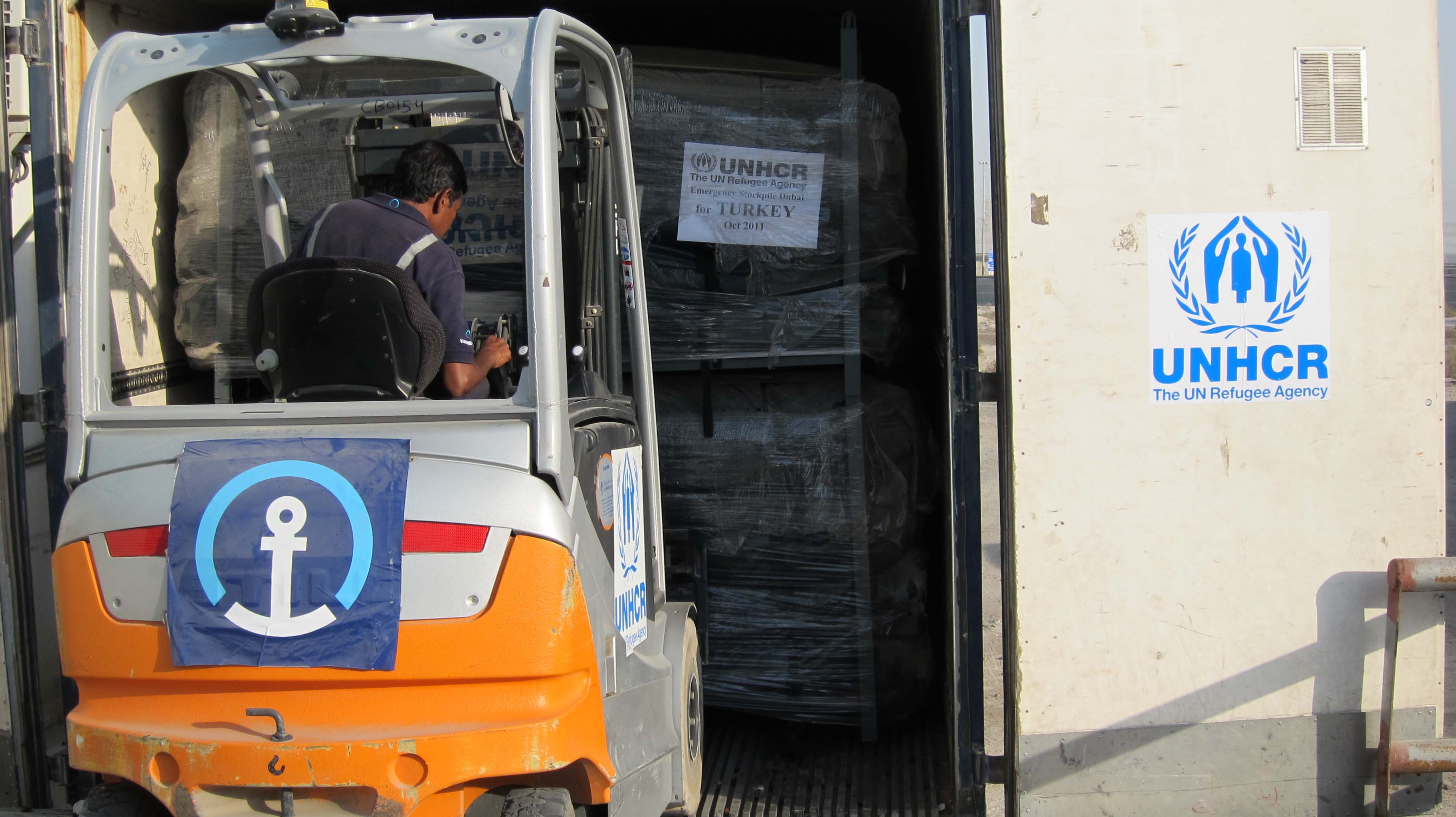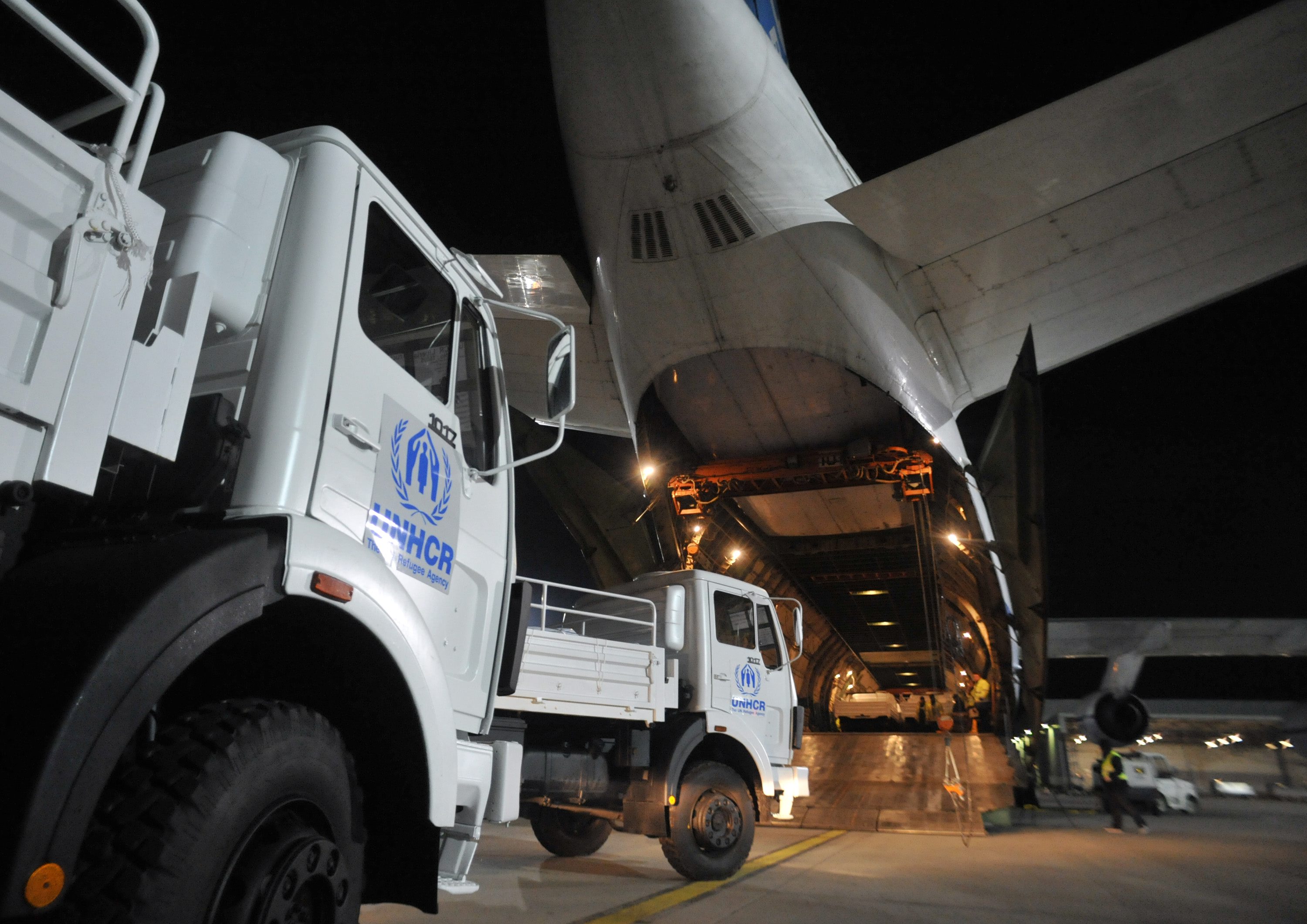Sri Lanka's tidal wave victims to receive UNHCR aid
Sri Lanka's tidal wave victims to receive UNHCR aid

COLOMBO, Sri Lanka, Dec 27 (UNHCR) - The UN refugee agency, supported by its Dutch partner, is set to distribute emergency aid to victims of Sunday's tidal waves in Sri Lanka while awaiting news of refugees possibly affected elsewhere in the region.
An earthquake measuring 9.0 on the Richter scale erupted in the Indian Ocean near the northern tip of Indonesia's Sumatra island on Sunday morning. It caused tidal waves in region, killing thousands of people along the coasts. Sri Lanka, still recovering from the devastation of over two decades of civil war, was one of the hardest hit.
On Monday morning, the Sri Lankan government and UN agencies held an emergency meeting in the capital, Colombo. They decided that UNHCR would concentrate on delivering relief items to the former conflict-affected area in the east of the country, where it has offices and access. In all, the refugee agency has seven offices in Sri Lanka, where it has worked for nearly two decades helping displaced populations as well as returning refugees.
"The magnitude of this disaster is so enormous and shocking that we will do everything we can to join the international community in bringing help as rapidly as possible to the victims of these gigantic waves," said UN High Commissioner for Refugees Ruud Lubbers. "Our supplies are usually for displaced people, but this is an emergency and the local population needs help right now."
UNHCR will provide 18,000 pieces of plastic sheeting, 17,000 plastic mats, rope, and non-food relief packages for 2,000 families. Those packages include cooking sets, plastic jerry cans, mosquito nets and clothing. Stichting Vluchteling, a Dutch non-governmental organisation that works closely with UNHCR on refugee programmes, told the agency on Monday that it would cover at least $200,000 of the approximate $280,000 cost of the relief items through its special fund-raising efforts for the disaster victims.
During the Bam earthquake a year ago in Iran, Stichting Vluchteling provided $624,225 in support through the National Dutch emergency coalition appeal.
It is still impossible to tell the full extent of the disaster in Sri Lanka, as communications networks within the country have collapsed and access to remote areas remains difficult. UNHCR will provide whatever immediate humanitarian support it can until international relief items arrive in the country. It will also assist the UN country team in strengthening the Sri Lankan government's response to the disaster and actively support emergency coordination at the district level.
All UNHCR staff in Sri Lanka have been accounted for. In Trincomalee on the east coast, the tidal wave swamped the house of a UNHCR associate programme officer, filling it with water and fish. Though slightly injured, she was able to swim out, evacuate the office and gather staff in a local hotel.
In southern India's Tamil Nadu, UNHCR received a report that 1,000 Sri Lankan refugees in Keelputhupattu camp were affected by the tidal waves but subsequently moved themselves to a Christian missionary hostel in Pondicherry. The refugee agency is planning an assessment mission from Chennai as soon as possible. No loss of life at the camp was reported.
Elsewhere in the affected region, UNHCR is awaiting word on the fate of some 80 refugees and asylum seekers on India's remote Andaman Islands, north of the earthquake's epicentre.







